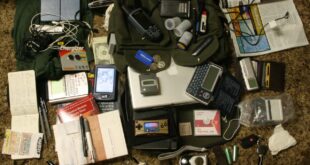When reporters and TV news executives gathered at the Fira Palace Hotel in Barcelona last November for the Fourth News World Global News Forum (with participants drawn from the ranks of CNN, APTN, BBC, ITN, CBS, ABC, NBC, and Fox News, among the many media organizations represented), the atmosphere was very much clouded by the then still unresolved American presidential elections.
The main topic of conversation at the conference, according to Raymond Snoddy, who reported on the Barcelona conference for The Times, was the debacle in premature calls by the American TV networks, which may have discouraged Bush voters late in the day in Florida from voting with the call that Gore had won, followed quickly by declarations by Fox News and others that Bush had won, generating a legitimacy for the Republicans that some Democrats claim prejudiced the entire proceedings.
British TV news executives such as Richard Tait, editor in chief of ITN; Mark Byford, chief executive of the BBC World Service; and Steve Anderson, head of current affairs at ITN were paying close attention to the observations by American TV news people, with a UK general election then coming up very fast.
The big issue, as usual, was exit polls. Peter Horrick, head of BBC current affairs, called upon ITN and other British broadcasters to join with BBC in pooling exit poll operations to help avoid the American fiasco. Both Steve Anderson of ITN and Don Hewett, CBS executive producer of 60 Minutes, argued that the best solution would be no exit polls at all.
But the debate over election coverage could not quite manage to overshadow the many other issues discussed and debated in Barcelona. UN Secretary General Kofi Annan participated in a panel on Africa via a satellite link from New York, saying that he was distressed at the coverage of events in Africa. Annan said scant reporting, focusing only on disasters and wars, "made the continent look like one continual disaster," and said he sometimes thought that no coverage would be better than any at all. Ahmedoi Ould, executive secretary for the Global Coalition for Africa, went still further, saying that reporters' thirst for action could fuel further violence.
But part of that violence, and not just in Africa, has been directed specifically against journalists. According to ITN's Richard Tait, this is because much of Third World conflict now involves "ill-disciplined militias under the control of warlords" rather than disciplined armed forces. That's why, Tait argued, broadcasting media must exert more pressure on governments to take steps to ensure the safety of journalists and to carry out full investigations into their deaths.
Indeed one of the highlights at News World 2000 was the launch of an industry code of practice for the safety of journalists. Drawn up by SNN, the BBC, ITN, and the news agencies Reuters and APTN, the guidelines state that assignments to war zones must be undertaken voluntarily and by experienced journalists. Chris Cramer, president of CNN International Networks, said the guidelines were only a beginning and that "it would be very depressing" if other news organizations didn't sign on.
But Ben Brown, special correspondent for BBC, noted that the pursuit of awards also contributed to the danger, since journalists were attracted to risk-taking because it so often led to awards.
Other topics of debate at News World included the impact that corporate and business pressure were making on news production and programming [see this issue's transcription of the News World symposium "Corporatization of the Media"] and the rival tugs on a TV journalist of the need to be concerned with technology and the need to know and focus upon his or her story.
But Ron McCullagh, managing editor of Insight News Television, urged broadcasters not to see the issue as a case of "either/or." He said his company will spend a year training skilled journalists on how to use a digital camera. "There are innovative ways to use technology that don't mean that journalism suffers," McCullagh said.
 Arab Media & Society The Arab Media Hub
Arab Media & Society The Arab Media Hub




